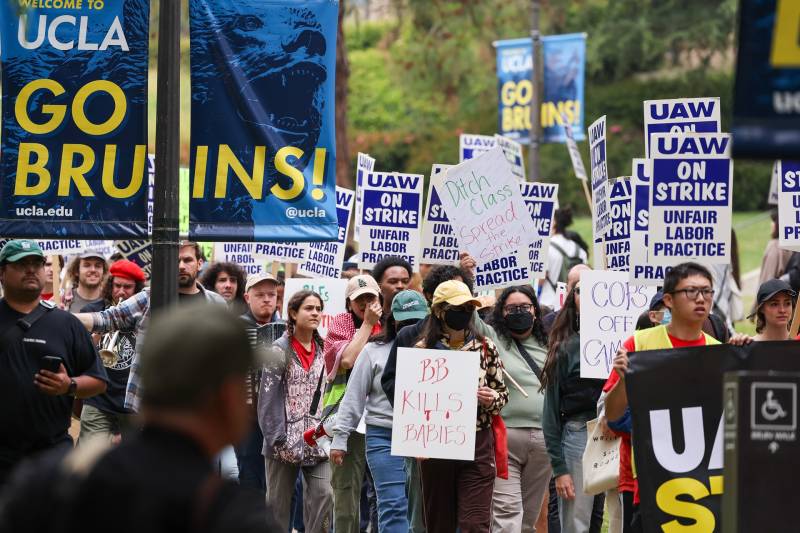The University of California on Wednesday announced that it is suing the union representing its academic workers, a move that follows two failed attempts to have state labor regulators stop thousands of graduate teaching assistants, researchers and others from striking.
In its suit filed Monday in Orange County Superior Court, the university system alleges that the United Auto Workers Local 4811, which represents 48,000 academic workers across the UC, is violating the no-strike clause of its contract. The union has said its rolling walkouts are in response to campuses’ handling of pro-Palestinian protests and the police actions against them, leading UC officials to label the strike a political action, not a labor one.
“The blatant breach of the parties’ no-strike clauses by UAW will continue to cause irreversible harm to the University as it will disrupt the education of thousands of students in the form of canceled classes and delayed grades,” said Melissa Matella, associate vice president for systemwide labor relations, in a statement. “The breach of contract also endangers life-saving research in hundreds of laboratories across the university and will also cause the university substantial monetary damages.”
Striking UAW workers have blocked entrances to hospitals and childcare centers, caused disruption to operations at UC Santa Cruz and barricaded themselves in buildings at UCLA, according to UC officials.
Rafael Jaime, a Ph.D. student at UCLA and president of UAW 4811, accused the UC system of ignoring the authority of the California Public Employment Relations Board, or PERB, which on Monday declined for the second time to rule the strikes illegal.

